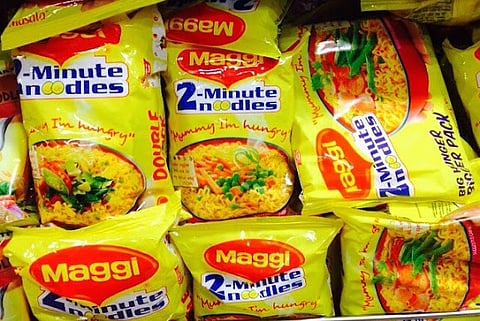

Two days after the state governments of Gujarat and Karnataka lifted the ban on Nestle India's Maggi noodles, the Maharashtra government has planned to appeal in the Supreme Court against lifting the ban.
Demanding further tests on the noodles, Maharashtra also plans to challenge Nestle’s claim that since the state laboratories were not NABL-accredited, their analysis cannot be replied upon.
This also comes a day after Nestle India unleashed a major advertisement campaign assuring consumers that "your Maggi is safe, has always been”, while adding that they will be able to eat their favourite noodles soon.
According to a report in Deccan Chronicle, FDA minister Girish Bapat said that Maharasthra had decided to appeal against the lifting of the ban, out of concern for public health.
Speaking to the newspaper, noted consumer activist and former member of FSSAI Bejon Misra said "How can the manufacturers claim that their product is safe? The consumers need to know the details of the Nestle factories and laboratories from where the samples were taken and tested. The FSSAI should be taking the call, and not Nestle India."
The Centre had directed the states to test Maggi samples in labs accredited by the National Accreditation Board for Testing and Calibration Laboratories (NABL).
In August 2015, the Bombay High Court ruled in favour of Nestle in its battle to overturn a nationwide ban of its Maggi instant noodles, but demanded the popular snack be tested again for safety before it could go on sale again.
The Bombay HC's order also criticized the FSSAI's facilities as being ill-equipped and understaffed.
Nestle India, had earlier destroyed thousands of tonnes of the instant noodles after it was banned.
It also presently faces a class action suit worth Rs 640 crore in damages, by the Consumer Affairs Ministry for alleged unfair trade practices, false labelling and misleading advertisements.